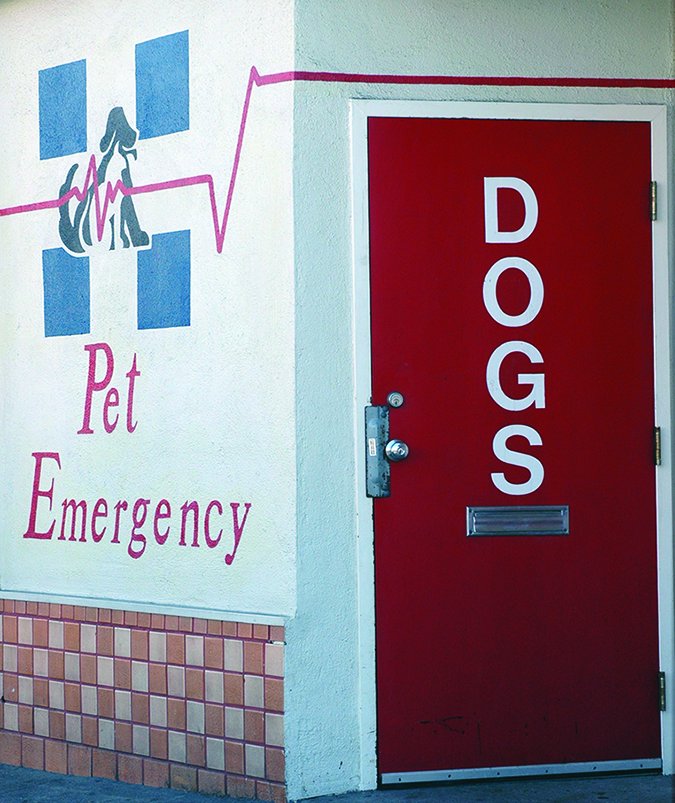If you have a dog, emergencies are inevitable. Dogs are prone to injuries, ingestion of toxic substances, and illnesses. Are you prepared in an emergency? Do you know what to do and what not to do? After nine years as an emergency veterinarian, I’ve seen it all! Here are my top tips for helping your emergency-room veterinarian help your dog.
1. Start a dog emergency fund.
Often, pet illnesses and injuries are sudden, unexpected, and very expensive. There are several ways to be prepared. Start a savings account for your pet. Also, consider pet insurance when adopting a new family member. Last, consider financing through a company such as CareCredit. These are credit cards available to use in the event of certain medical emergencies (including veterinary), and there are many options currently available.
Pro tip: Check ahead of any emergencies to see what payment options your emergency veterinarian offers.
2. Contact ASPCA Poison Control (888-426-4435) or the Pet Poison Helpline (855-764-7661).
Consult one of these hotlines for advice on what to do should your dog ingest a potential toxin or foreign object. For a flat fee, they will tell you what treatment can be administered and whether a trip to the emergency vet is needed. For instance, the silica packs found in many products are not toxic when eaten, but they can cause an obstruction in the small intestines of small dogs.
Pro tip: Post the poison-control numbers in a visible place in your house; save them in your mobile phone contact list, too.

3. Do not administer medications to your pet without consulting a veterinarian first.
There are many medications that, while safe at appropriate doses in humans, can be toxic to your pet. While acetaminophen (the active ingredient in Tylenol) serves as a fever reducer and pain reliever in humans, it can cause liver failure in dogs. Naproxen, a common pain reliever used in human medicine, can cause severe GI bleeding and kidney failure in dogs when used at almost any dose.
Similarly, giving aspirin to your dog can impede the veterinarian’s ability to treat your pet effectively. Aspirin can inhibit blood clotting for up to seven days after a single dose. If your pet needs surgery, this could be a major problem. Further, if your pet needs treatment with steroids or a non-steroidal anti-inflammatory, it may have to be delayed for two to three days.
4. Don’t forget your pet’s medical records!
If you find yourself heading for the vet ER, don’t forget to bring along any medications that your pet takes. Also, don’t forget to tell the veterinarian if you’ve given your dog any medication or remedy. This includes aspirin, Benadryl, Pepto-Bismol, Pepcid AC, supplements, and any prescription medications. It is imperative that we know everything in the pet’s system, especially when treating a possible toxin ingestion.
Pro tip: Download a pet medical record app for your phone such as VitusVet or PawPrint.
5. Be prepared to wait!
If you have to wait in the emergency room with your dog, it’s a good sign! That means his condition is not life-threatening enough to warrant being rushed to the treatment area. Just as human ERs can have extended waits, so can pet ERs. Be patient with the doctors and staff. They are trying to give close attention and time to each patient. This ensures that pets receive the attention they need and the best treatment options.
Dealing with a pet emergency can be a stressful and scary experience. With a little forethought, you can help make a trip to the emergency veterinarian a significantly less stressful event.
Catherine Ashe, DVM, practiced ER medicine for nine years. She now works as a relief veterinarian in Asheville, North Carolina.







Thank you for the advice to remember to bring your pet’s medical records with you to the emergency vet. my dog just ate a bunch of fudge off the counter and I need to get her in somewhere right now. She is on a few medications, so I will remember to bring these with me so the vet can know exactly what she is taking. I am going to find an emergency vet in my area that can help me.